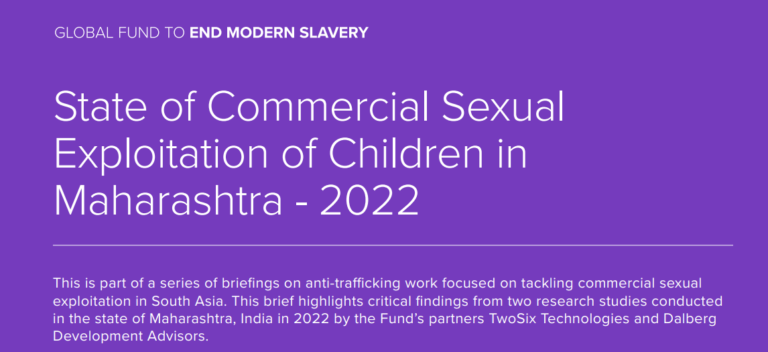India is a global hotspot for trafficking of women and minors for commercial sexual exploitation (CSE), and Maharashtra, as its financial and commercial capital, is one of the largest destinations for CSE in the country. However, reliably estimating the size of child sex trafficking victims has historically been challenging owing to the hidden nature of this population.
Between 2019 and 2020, the Global Fund to End Modern Slavery (GFEMS) supported researchers to produce initial studies on the prevalence of CSEC as well as on traffickers and buyers of CSEC in the state of Maharashtra – these studies were then replicated in 2022.
Replicating the research methods employed during the first phase of research (2019-2020), this study found that, while prevalence remained high, perceptions of risk among potential buyers decreased significantly. Increasingly, trafficking is viewed as a crime with little risk, meaning deterrence remains a challenge. For more findings from both the phase two prevalence study and deterrence study, and for targeted recommendations to reduce CSEC in Maharashtra, read the full brief.

